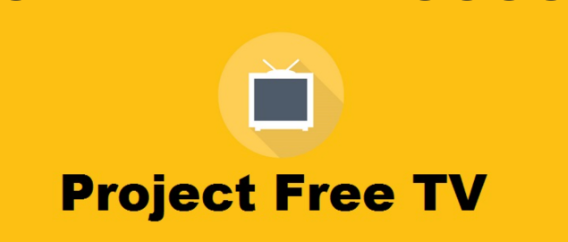Is DeFi Development Popular in 2022?
Decentralized finance—better known as “DeFi”—refers to the shift from traditional, centralized financial systems to peer-to-peer finance enabled by decentralized technologies built on the Ethereum blockchain. From lending and borrowing platforms to stablecoins and tokenized BTC, the DeFi ecosystem has launched an expansive network of integrated protocols and financial instruments. And with over $13 billion worth of value locked in DeFi protocols as of January 2021, it’s safe to say that the industry is booming. But what does the future hold for DeFi development? Is this just a fad that will die out in a few years? Or is it here to stay? In this blog post, we will explore the current state of DeFi development and discuss whether or not this trend is popular in 2022.
What is DeFi?
Decentralized finance—often called DeFi—refers to the shift from traditional, centralized financial systems to peer-to-peer finance enabled by decentralized technologies built on the Ethereum blockchain. From lending and borrowing platforms to stablecoins and tokenized BTC, the DeFi ecosystem has launched an expansive network of integrated protocols and financial instruments. By deploying immutable smart contracts on Ethereum, DeFi developers can launch financial applications that run exactly as programmed and that are available to anyone with an Internet connection.
The breakthrough of DeFi is that crypto assets can now be put to use in ways not possible with fiat or “real world” assets. Decentralized exchanges, synthetic assets, and flash loans are completely novel applications that can only exist on blockchains. This paradigm shift in financial infrastructure presents a number of advantages with regard to risk, trust, and opportunity.
From DAOs to synthetic assets, decentralized finance protocols have unlocked a world of new economic activity and opportunity for users across the globe. The comprehensive list of use cases below is proof that DeFi is much more than an emerging ecosystem of projects. Rather, it’s a wholesale and integrated effort to build a parallel financial system on Ethereum that rivals centralized services because it is profoundly more accessible, resilient, transparent, and interoperable, especially one that is sourced from a reliable DeFi Development Agency.
The Different Types of DeFi Development
There are many different types of DeFi development. The most popular type is Ethereum smart contract development. This is because Ethereum is the most popular blockchain for DeFi applications. Other types of DeFi development include:
- Building decentralized exchanges (DEXes)
- Creating stablecoins
- Developing lending platforms
- Developing new kinds of financial instruments
What is the Future of DeFi Development?
The future of DeFi development is shrouded in potential but fraught with uncertainty. The sector has emerged as one of the most active and promising areas of the cryptocurrency industry, with a wide range of projects and protocols seeking to take advantage of the unique benefits that blockchain technology can offer.
However, despite the considerable progress that has been made in recent years, many challenges remain. The lack of regulatory clarity, for example, is a major hindrance to further development and adoption. Additionally, the scalability limitations of Ethereum, which is currently the most popular platform for DeFi projects, continue to present a significant obstacle.
That said, there is reason to be optimistic about the future of DeFi. The industry is still in its early stages and as it matures we are likely to see more widespread adoption, improved infrastructure, and greater regulatory clarity. With these factors in place, DeFi could become a major driving force behind the mainstream adoption of cryptocurrency.
What is DeFi Development?
DeFi development is the process of creating decentralized financial applications on the Ethereum blockchain. These apps aim to provide users with a more efficient and secure way to manage their finances.
Some popular DeFi apps include MakerDAO, which allows users to borrow and lend Dai, a stablecoin pegged to the US dollar; Compound, which enables users to earn interest on their crypto investments; and Kyber Network, which allows for the instant exchange of cryptocurrencies.
Since its launch in 2015, the Ethereum network has been home to the vast majority of DeFi projects. This is due to its native support for smart contracts, which are required for most DeFi apps.
The popularity of DeFi development has exploded in recent years as more and more people become interested in managing their finances in a decentralized way. According to DeFi Pulse, there is currently over $1 billion worth of value locked in Ethereum-based DeFi protocols.
With the number of active DeFi users growing daily, it’s safe to say that this trend is here to stay. So if you’re looking to get involved in the world of cryptocurrency, DeFi development is a great place to start!
What are the Popular DeFi Projects in 2022?
The popularity of DeFi projects has exploded in recent years, with billions of dollars’ worth of value locked into various protocols. But what will the most popular DeFi protocols be in 2022?
There are a few factors that will determine which protocols become the most popular in the coming years. Firstly, we expect that newer, more innovative protocols will start to gain more traction as they offer better features and greater returns than existing protocols. Secondly, the overall growth of the DeFi sector will mean that even smaller protocols will see an increase in users and locked value.
With that said, here are a few DeFi protocols that we expect to be among the most popular in 2022:
- MakerDAO: Maker is one of the oldest and most well-known DeFi protocols, with a strong track record of stability and security. It offers a variety of services including collateralized lending, stablecoins, and Dai Savings Rate (DSR). With its recent upgrade to Multi-Collateral DAI (MCD), Maker is now one of the most robust and versatile DeFi platforms available.
- Compound: Compound is a lending platform that allows users to earn interest on their crypto assets. It recently launched its own COMP token, which gives holders governance rights over the protocol. With its simple interface and high yields, we expect Compound to continue growing in popularity in the coming years.
How to Get Involved in DeFi Development
If you want to get involved in DeFi development, there are a few things you can do. First, research the projects that interest you and see if they have any open development positions. You can also reach out to the teams behind these projects directly and inquire about contributing.
Another way to get involved is by building tools and applications that complement or improve existing DeFi protocols. These can be simple utilities or more complex smart contracts. By offering your creations to the community, you can not only make a name for yourself but also earn rewards in the form of bounties.
Finally, another way to participate in DeFi development is by contributing to open-source projects. This could involve anything from debugging code to writing documentation. Not only will you be giving back to the community, but you’ll also gain valuable experience that could come in handy down the line.
The Different Types of DeFi Projects
There are a variety of different types of DeFi projects that are popular in the space. These include lending platforms, exchanges, and protocols.
Lending platforms like Maker allow users to lock up their crypto assets as collateral and borrow against them. This can be useful for margin trading or getting liquidity when needed.
Exchanges like Uniswap enable decentralized trading of cryptocurrencies. This means that there is no central entity controlling the exchange, which can lead to lower fees and more security.
Protocols like Compound provide a way for users to earn interest on their cryptocurrency holdings. This can be done by lending out your assets or providing liquidity to an exchange.






